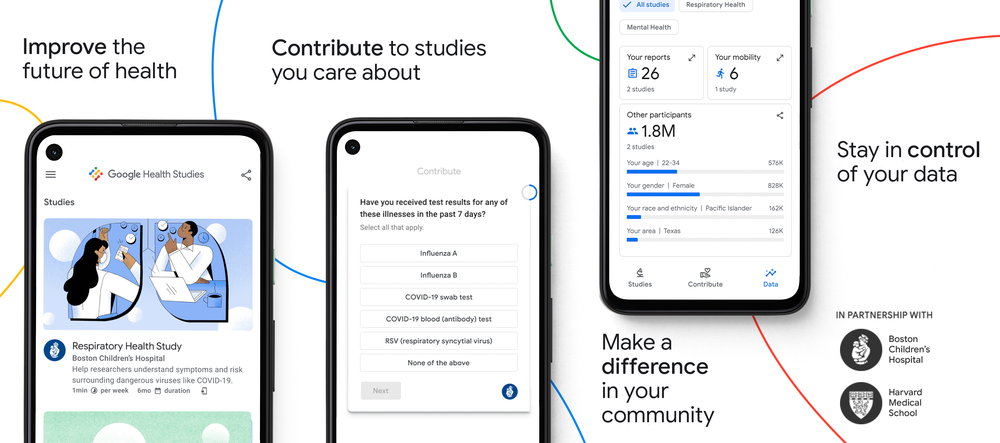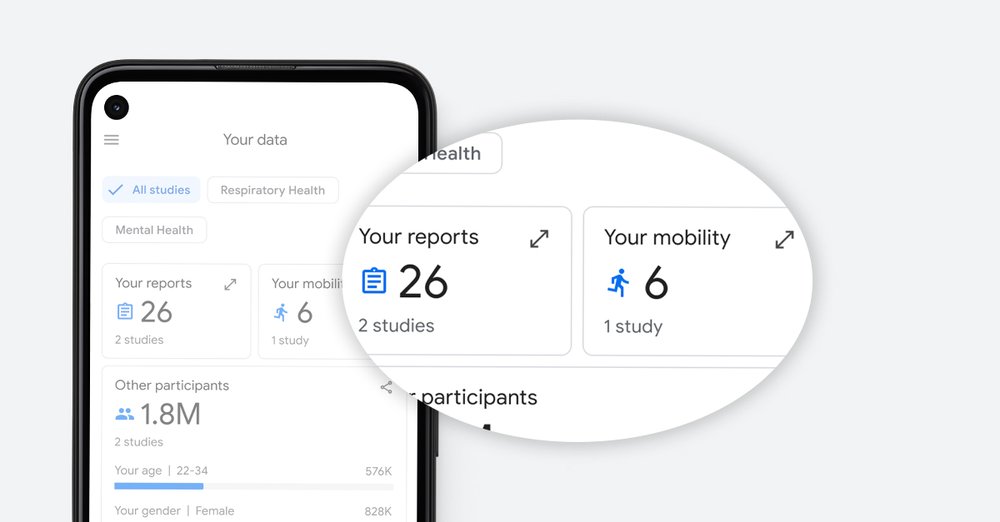
Google’s Health division today announced that its next project is an application to “make it easier for leading research institutions to connect with potential study participants.” The Google Health Studies app is available for Android and takes advantage of federated learning and analytics.
It lets you take part in studies that involve answering questions and “contributing relevant data.” The inaugural research effort is from Harvard Medical School and Boston Children’s Hospital to better understand respiratory illnesses like influenza and COVID-19.
This Respiratory Health Study will be open to adults in the US, and will focus on identifying how these types of illnesses evolve in communities and differ across risk factors such as age, and activities such as travel.
Researchers are looking at the “link between mobility (such as the number of daily trips a person makes outside the home) and the spread of COVID-19.”

Participants will “regularly self-report how they feel, what symptoms they may be experiencing, any preventative measures they’ve taken, and additional information such as COVID-19 or influenza test results.” The app makes it easy to see everything you’ve contributed and withdraw at anytime. When study findings are available, Google will notify users to let them get a better sense of their participation.
Each survey notes what a user’s expected contribution is every week and the duration of the study. The app uses federated learning to keep your data stored on device, while still pulling aggregated insights from all participants. This privacy-preserving technology is used by Gboard today to improve typing predictions “without Google seeing what individuals type.”
The Google Health Studies app is available for Android today.

More from Google Health:
- New Google Health tool helps plan medical visits, rolling out to Search
- Google Health partners with Mayo Clinic on using AI to help speed up cancer treatment planning
- Google Health demonstrates AI ‘surpassing human experts in breast cancer prediction’
Author: Abner Li
Source: 9TO5Google



